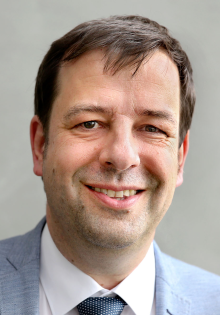Paderborn University cooperates with Bad Driburg grammar school St. Xaver
Practical exercises on one of the fastest high-performance computers in Germany and experience the fascination of science at the same time: From now on, this is possible for pupils in the sixth form at St. Xaver Gymnasium. At an annual workshop at Paderborn University, the young people visit the Paderborn Center for Parallel Computing (PC2), one of nine nationwide centres for National High Performance Computing (NHR). The workshop is part of a newly concluded cooperation agreement between the educational institutions, in which the pupils are introduced to computer science research projects by university scientists.
Dr Stephan Blazy, a teacher at St. Xaver Gymnasium and former research assistant at PC2, got the cooperation between the school and university off the ground. Thanks to his initiative, the first three-day workshop took place at the beginning of April. Among other things, pupils had the opportunity to test programs they had developed themselves on the Paderborn supercomputer "Noctua 2" – the heart of Paderborn University's high-performance computing centre. Researchers throughout Germany utilise the computing capacity of the high-performance computing systems to carry out sophisticated computer simulations and science at the highest level. High Performance Computing (HPC) is used for various disciplines such as quantum or mobility research, sustainable energy generation or environmentally friendly chemical processes.
"We are delighted to be able to draw attention to the exciting field of computer science at an early stage in this way and perhaps attract future students to Paderborn University," says Prof Dr Matthias Bauer, President of Paderborn University. Headmaster Antonio Burgos is also very pleased: "As a STEM school, we are delighted to have an excellent university right on our doorstep in Paderborn University, which is also open to new ideas." St. Xaver Gymnasium has a strong STEM profile and is a member of the national excellence network "MINT-EC".
About the Paderborn Centre for Parallel Computing (PC2)
The PC2 is an interdisciplinary research institution at Paderborn University. As a member of the National High Performance Computing Network (NHR), it contributes to strengthening the research infrastruture for top researchers throughout Germany with the help of state-of-the-art high-performance computing systems. In addition to the existing flagship "Noctua 2", another high-performance computer is to be installed at the end of this year, which will contribute to a deeper understanding of chemical reactions at the atomic level or work in the field of quantum computing, among other things.
This text was translated automatically.



